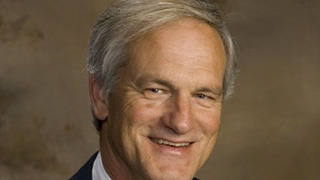"Galileo, Science and Scripture"
Friday, February 16, 2024

Kenneth J Howell, Ph.D.
The Seton Hall University Society of Catholic Scientists in collaboration with the Department of Physics, the Department of Catholic Studies, the Center for Catholic Studies, the Department of the Core Curriculum, the Immaculate Conception Seminary School of Theology and Campus Ministry proudly presents "Galileo, Science and Scripture," a lecture by Kenneth J. Howell, Ph.D., an academic director of the Eucharist Project and president of the Pontifical Studies Foundation on Thursday, April 18 at 3:30 p.m. in the Walsh Library – Beck Rooms.
After receiving a Ph.D. in the History of Science from Lancaster University (UK), Kenneth J. Howell studied the Scientific Revolution for over twenty years. He wrote numerous articles and a volume entitled God’s Two Books: Copernican Cosmology and Biblical Interpretation in Early Modern Science. Howell also holds an M.Div. from Westminster Theological Seminary and a Ph.D. in Linguistics from Indiana University.
The encounter of Galileo Galilei (1564–1642) with the Roman Catholic hierarchy has long been viewed through the lens of warfare. However, a dispassionate review of the evidence of events and texts suggests a very different conclusion. Galileo was one of the greatest luminaries of the Scientific Revolution and a foundational figure of modern physics. Still, he also professed his adherence to the Catholic faith in no uncertain terms. How shall we understand the conflict between the Church and Galileo’s science? In three parts, Howell will paint a historical picture of astronomy of this period and how the appearance of Copernican cosmology provoked a controversy about the ultimate image of the universe. After a review of the state of astronomy at the time of Galileo, Howell will sketch Galileo’s life and work on astronomy. He will then offer an interpretation of his famous "Letter to the Grand Duchess Christina," which reveals enduring issues in the interaction of the empirical sciences and Christian revelation.
Categories: Faith and Service, Science and Technology






